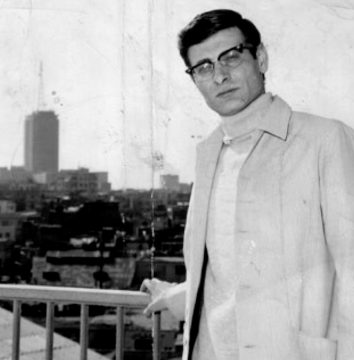Ursula Lindsey in the New York Review of Books:
 The late Palestinian poet Mahmoud Darwish (1941–2008) liked to write in the mornings, preferably in a narrow room with a window overlooking a tree. He required solitude and coffee; he wrote in black ink on loose, thick, white paper. He often listened to music. His poems, he told the journalist and fellow poet Abbas Beydoun in 1995, always started out as a cadence, a tempo. “My mornings are sad,” Darwish said. But his afternoons and evenings could be joyful, for as he explained to Beydoun:
The late Palestinian poet Mahmoud Darwish (1941–2008) liked to write in the mornings, preferably in a narrow room with a window overlooking a tree. He required solitude and coffee; he wrote in black ink on loose, thick, white paper. He often listened to music. His poems, he told the journalist and fellow poet Abbas Beydoun in 1995, always started out as a cadence, a tempo. “My mornings are sad,” Darwish said. But his afternoons and evenings could be joyful, for as he explained to Beydoun:
It happens sometimes that one writes something and then says, “Oh God” out of ecstasy. As if someone else has written it…. Sometimes, ravished by the musicality of a strophe that I have just written, I find myself going and coming in the apartment, reciting with gaiety, satisfied with myself, and telling myself, “Bravo! Bravo!” These days, after these moments of intense happiness, I reward myself with a dinner in a good restaurant, I invite friends, and I do a small feast.
Darwish made this delightful confession in one of five interviews that have been translated into English for the first time by Amira El-Zein and Carolyn Forché and collected in Palestine as Metaphor. They all took place in the mid-1990s, by which time he had been famous for three decades as the iconic voice of the Palestinian cause.
More here.
